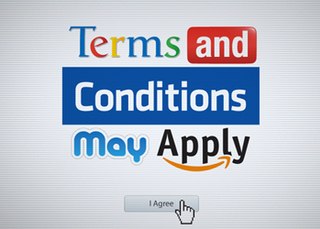 W
WA free-software license is a notice that grants the recipient of a piece of software extensive rights to modify and redistribute that software. These actions are usually prohibited by copyright law, but the rights-holder of a piece of software can remove these restrictions by accompanying the software with a software license which grants the recipient these rights. Software using such a license is free software as conferred by the copyright holder. Free-software licenses are applied to software in source code and also binary object-code form, as the copyright law recognizes both forms.
 W
WInternet privacy involves the right or mandate of personal privacy concerning the storing, repurposing, provision to third parties, and displaying of information pertaining to oneself via Internet. Internet privacy is a subset of data privacy. Privacy concerns have been articulated from the beginnings of large-scale computer sharing.
 W
WPublic-domain-equivalent license are licenses that grant public-domain-like rights and/or act as waivers. They are used to make copyrighted works usable by anyone without conditions, while avoiding the complexities of attribution or license compatibility that occur with other licenses.
 W
WA standard form contract is a contract between two parties, where the terms and conditions of the contract are set by one of the parties, and the other party has little or no ability to negotiate more favorable terms and is thus placed in a "take it or leave it" position.
 W
WTerms and Conditions May Apply (2013) is a film documentary that addresses how corporations and the government utilize the information that users provide when agreeing to browse a website, install an application, or purchase goods online. In the film, director/narrator Cullen Hoback discusses the language employed in user-service agreements on the World Wide Web, and how online service providers collect and use users' and customers' information.
 W
WTerms of Service; Didn't Read (ToS;DR) is a community project which aims to analyze and grade the terms of service (TOS) and privacy policies of major Internet sites and services. Each aspect of a TOS or privacy policy is assessed as positive, negative, or neutral. Services are graded from A (best) to E (worst) once a comprehensive list of cases has been reviewed by volunteer curators. The name of the project is a play on the phrase too long; didn't read.
 W
WThe Unfair Contract Terms Act 1977 is an Act of Parliament of the United Kingdom which regulates contracts by restricting the operation and legality of some contract terms. It extends to nearly all forms of contract and one of its most important functions is limiting the applicability of disclaimers of liability. The terms extend to both actual contract terms and notices that are seen to constitute a contractual obligation.